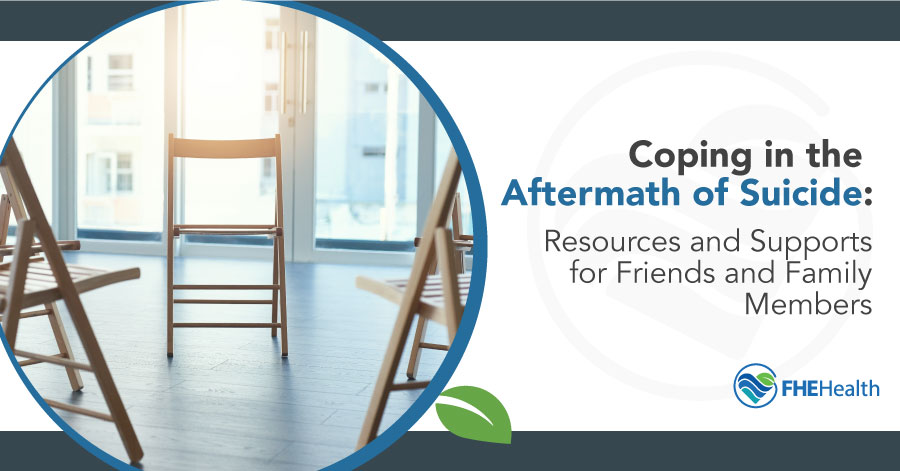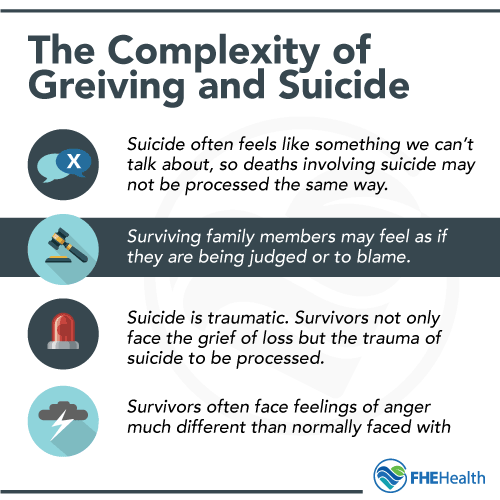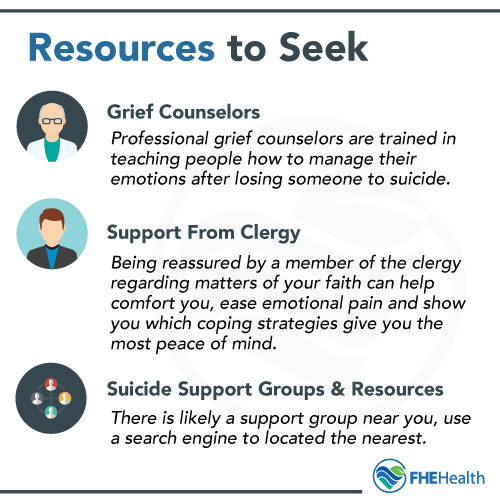
|
|
Freud described over a century ago in a book called “Trauer und Melancholie (Mourning and Melancholia)” that attempted to explain two similar but disparate reactions of someone losing a loved one.
According to Freud, grief (mourning) refers to the experience of intense sorrow and distress over the loss of a loved one, a process Freud thought took place in the conscious mind. Melancholia, an outdated term for what is now called clinical depression, is defined by Freud as pathological grieving for losses that can’t be fully identified or understood.
Unlike grief, which Freud considered to be a healthy, natural response to the loss of a loved one, he viewed melancholia as an unnatural, unhealthy response to a subjective perception of reality. Unless confronted and resolved, Freud stated that melancholia (depression) often led to neurosis and defense mechanisms meant to protect the ego.
Grieving Is a Natural, Necessary Response to a Suicide
 Experiencing and understanding powerful, disturbing emotions following a loved one’s suicide is an intense, complex process involving conflicting feelings of love, anger, disbelief and sometimes hate that many people find difficult to accept. Talking to a living human being one day and finding out they committed suicide within hours or days of interacting with them may be the most devastating event a person can endure.
Experiencing and understanding powerful, disturbing emotions following a loved one’s suicide is an intense, complex process involving conflicting feelings of love, anger, disbelief and sometimes hate that many people find difficult to accept. Talking to a living human being one day and finding out they committed suicide within hours or days of interacting with them may be the most devastating event a person can endure.
Fortunately, many resources are available that provide compassionate support to help you through the grieving process. While grieving is a natural process and should be allowed to complete its cycle, some people find it difficult to grieve in a healthy manner. This is when someone may need extra help in managing their emotions and coming to terms with the suicide of a loved one.
Grieving and Your Physical Health
Suicide bereavement not only affects your psychological health but your physical health as well. Not allowing yourself to grieve in a healthy manner may induce physical conditions harmful to your overall health and well-being. Feeling depressed, isolated and confused activates the release of stress hormones that may cause:
- Migraines
- Backaches
- Eczema, hives or skin rashes
- Hypersomnia (sleeping too much)
- Insomnia
- Joint aches
- Heart palpitations
- Ulcers
- Fatigue or lack of energy
- High blood pressure
People who are grieving may visit their doctor multiple times and take prescriptions for illnesses that are emotional or psychological. If you’re suffering from one or more of these health problems, it is relevant to disclose to your doctor that you are grieving over the death of a loved one by suicide. Your doctor will probably refer you to a grief counselor who can help you cope with the stress of grieving.
Resources for Helping You Cope in the Aftermath of Suicide
Grief Counselors
 Professional grief counselors are trained in teaching people how to manage their emotions after losing someone to suicide. Grief counselors may be necessary if you find yourself unable to function normally while dealing with powerful emotions.
Professional grief counselors are trained in teaching people how to manage their emotions after losing someone to suicide. Grief counselors may be necessary if you find yourself unable to function normally while dealing with powerful emotions.
Guilt, despair, confusion and fear are all common emotions people experience after a loved one dies from suicide. Ignoring and suppressing these emotions prevents these intense feelings from being understood and assimilated into the everyday emotions you normally experience.
Grief counselors offer nonjudgmental opportunities for people to process and explore upsetting emotions caused by the suicide of a loved one. They also inform clients about the uniqueness of grief as emotion and that its presentation, style, intensity, and length vary dramatically among individuals. Counselors further show clients how to reframe their loss in a more positive way to facilitate acceptance and help them assimilate grief emotions.
Support From Clergy
Being reassured by a member of the clergy regarding matters of your faith can help comfort you, ease emotional pain and show you which coping strategies give you the most peace of mind. Even those who are not religious may find that talking to someone who regularly counsels grieving individuals can help them in their search for closure following the suicide of a loved one.
Suicide Support Groups and Resources
You may find it helpful to attend a support group or join an online community of people who are also suffering like you. Popular groups include Support for Suicide Loss Survivors, Survivors of Suicide, Suicide Loss and Suicide Grievers Support Groups. A tool such as the one American Foundation for Suicide Prevention provides can help you locate the nearest group.
Helping Children Deal With the Loss of a Loved One by Suicide
While it may be hard to be upfront with a child regarding suicide, it’s vital that you send a child the message that death is a normal process and everyone deals with death in their own way. Children under the age of five generally can’t comprehend the phenomenon of death. You might consider explaining that someone dies when their body is no longer working properly instead of trying to explain what suicide encompasses.
Older children usually understand the finality of death and may experience more difficulty in dealing with the suicide of a loved one than younger children do. Depending on the religious beliefs of the child’s family, answers should adequately explain what the child wants to know without evading the actual meaning of the question.
Does It Get Easier?
For most people, the pain of grief eventually lessens as time passes and the demands of daily life take over once again. And although it does get easier, it’s entirely normal and healthy for emotions associated with grief to re-emerge.
For example, something may remind you of the loved one who committed suicide — a song, a restaurant, a movie, a dream, a holiday — provoking feelings you experienced at the beginning of the grieving process. Accept this when it happens and take a moment to think about what you’re feeling instead of suppressing uncomfortable emotions.
If a Suicide Has Caused Mental Health Issues or Substance Use
As a leading mental health and addiction treatment center in Florida, FHE Health provides support for people with substance abuse disorders who find the loss of a loved one to suicide worsening their addiction. For recovering addicts who are no longer using, coping with the suicide of a sibling, parent or best friend can trigger cravings and the urge to start abusing drugs or alcohol again. Don’t hesitate to call FHE Health today if you need to talk to a caring specialist about coping with a loved one’s suicide while dealing with a substance addiction.






